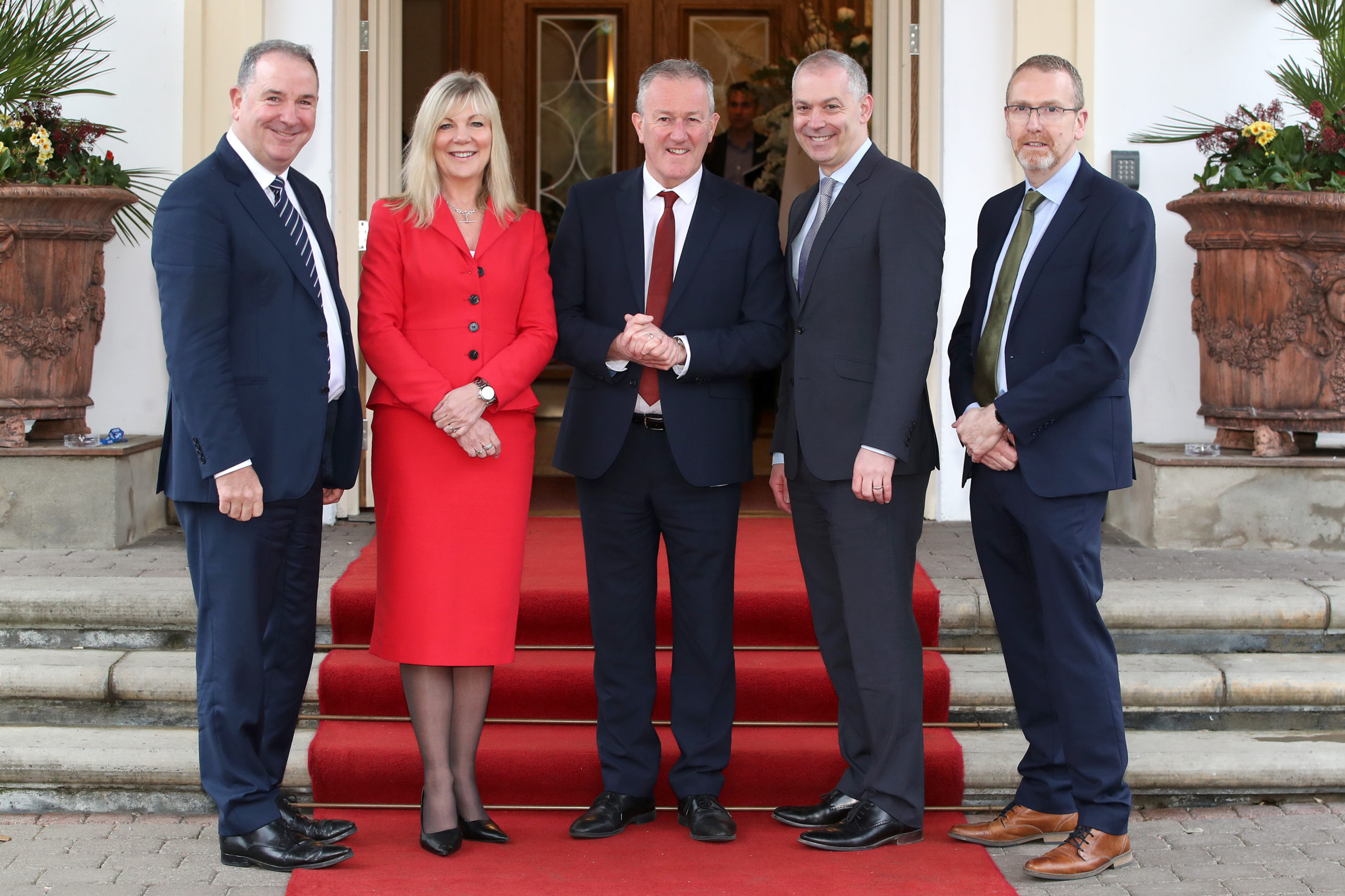More than 300 businesspeople have joined policymakers including Economy Minister Conor Murphy and the new Chief Executive of Invest NI, Kieran Donoghue for a collaborative conference designed to facilitate deeper co-operation between industry and policymakers.
Hosted by Northern Ireland Chamber of Commerce and Industry (NI Chamber) with the support of headline sponsor Ulster Bank and supporting sponsors BT and ESB, the event coalesced around key pillars including competitiveness, green growth, innovation and inclusivity.
Mr. Murphy told the businesses gathered in Galgorm Resort and Spa that: “The restoration of the Executive and more certainty on our trading relationships has contributed to a renewed sense of optimism within the business community.
“My Economic Vision has been informed by very fruitful and candid discussions with the business community and with the Chamber of Commerce. Since coming into office, I have provided the strategic clarity needed and brought in external expertise to offer advice, to provide constructive challenge, and ultimately to help us to achieve our objectives.
“As we move into the delivery phase and roll out my policy agenda I will continue to engage with the Chamber. I have three years left in the mandate so creating momentum is all the more important. I am confident that through our shared vision, through collaboration and co-design, we can significantly turn the dial up on our economic performance.”
Delegates representing a broad spectrum of business sectors also heard perspectives from 18 different business leaders including representatives from FinTrU, Eakin Healthcare, Encirc, EY, KPMG and GRAHAM.
Addressing the audience, Suzanne Wylie, Chief Executive, NI Chamber said:
“We are firmly of the view that the only way to address our challenges and really build a prosperous, productive and inclusive economy is though partnership, with business and government working together from the outset to co-design and co-deliver genuinely transformative solutions.
“The Economy Minister recently published his Economic Vision for Northern Ireland. Today, we want to delve into the action plan and delivery mechanisms which will make that Vision a reality. It about fostering the widest and deepest collaboration possible, in pursuit of economic growth.”
Speaking about the current trading landscape she continued:
“While most businesses who responded to our latest Quarterly Economic Survey are currently trading well or reasonably, we know that around one in four are just covering costs or struggling. Inflation is one of the most pressing concerns – figures show that inflation is slowly heading in the right direction but was still 3.2% in March. When combined with pressures from rising labour costs, business rates and energy, it’s clear that business conditions remain challenging.
“Now that the Executive is up and running again, respondents to that survey clearly articulated the need for strategic decision making; indeed their top priority for Stormont Ministers was the roll-out of a new economic strategy, along with a long-term infrastructure plan and an independent review of public spending as a pre-requisite to revenue raising.”
Setting out the economic perspective, Richard Ramsey, Chief Economist, Ulster Bank told attendees:
“They say that all politics is local; and indeed our newly formed NI Executive has plenty of local issues to deal with. These include the pressing need to upgrade our wastewater infrastructure to unlock house building and help address our housing supply crisis. For without good wastewater infrastructure, you can’t have good, affordable housing, and without good, affordable housing, you can’t really attract good people to work in those good jobs.
“But in today’s world, all politics is also very global. Global issues ranging from conflict in the Middle East to the American Presidential Election have the potential to impact on Northern Ireland and its economy. Northern Ireland’s new Executive can control the local issues it faces by investing in wastewater infrastructure and acting to stimulate and support house building. It can’t control the global, geopolitical issues. But it does need to be able to adapt to them and maximise what opportunities they present. This means having a good understanding of what they are and what they mean for us.”


